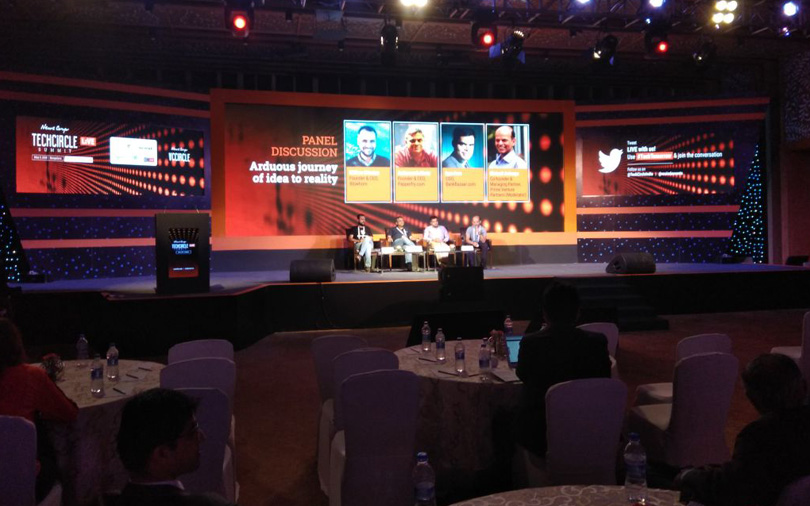
Strong core teams determine future course of startups: TechCircle Live


Numerous factors can work against a startup in its early days, but a strong core team will see it through thick and thin, thus setting a strong foundation, said panellists at the TechCircle Summit.
The 2018 edition of TechCircleLive saw entrepreneurs and investors gather in Bengaluru to discuss how technology and the digital revolution have impacted the way businesses are run in India.
For the second panel discussion, titled ‘Arduous journey of idea to reality,’ panellists shared their experiences of the dedication and perseverance required to execute their startup ideas.

The panel was moderated by Shripati Acharya co-founder and managing partner at early-stage venture capital firm Prime Venture Partners. The other speakers were Mithun Srivatsa, co-founder of logistics marketplace Blowhorn; Ambareesh Murty, chief executive and founder of online furniture retailer Pepperfry; and Iype Isac, chief delivery officer of online financial marketplace BankBazaar.
The panellists narrated the early days of their existence when their respective core teams stuck together by taking significant pay cuts and putting in exceptional efforts to survive longer and avoid layoffs.
“We were bootstrapped and in six months, we ran out of our funds. We decided to do an offsite at Goa with two things in mind: one, to brainstorm the future course, and secondly, the thinking was that if we fail, let’s fail spectacularly. We had 31 employees. When we came back from Goa, we had a $5-million Series A investment proposal on our table. The same 31 people form the core of our company,” Murty explained. He said the core team took about a 75% pay cut, so that the company did not have to take any radical steps of laying off employees.

Similarly, Srivatsa of Blowhorn shared how his firm started off 2016 with just two weeks of capital left in the bank but successfully strove through the year on cash flow, thanks to the core team taking pay cuts and the company cutting down on other costs without a single employee quitting.
Ideas fail but not people
Murty’s biggest advice to entrepreneurs is to be optimistic and never lose confidence because what would fail is an idea, not a person. “The fundamental difference between entrepreneurs and [the] rest of the people is that entrepreneurs take the risk. The first huge risk is the decision to startup and after that everything will work. There would be many snafus, but stay close to what you believe. If it works, it’s good; if it not, let it go, you would do something else because it’s ideas that fail, people don’t,” he elaborated.

BankBazaar’s Isac explained how the financial services platform chose to avoid high cash burn, which went against the advice of a prospective investor who insisted they burn more to increase their top-line in order to avoid financial distress.
Similarly, Blowhorn had reject a potential investor who offered a big cheque if the company scaled up but which was not unit economics positive. “We were trying out two-wheeler delivery, but the unit economics didn’t work. An investor offered a bid cheque and asked us to really accelerate the two-wheeler delivery service. A lot of people told us to do whatever it takes to get the investor money and may be pivot later, but we chose not to do that,” Srivatsa said.
According to Isac, startups need to expect rejections, address them and keep pushing forward to survive and thrive. “We were in the US, working with leading tech-based companies like Microsoft and Amazon. We came back, launched our company and insisted that we will build it even as our family was constantly suggesting us that we go back to our Microsoft and Amazon lives. We were ready for rejections, but keep pushing through,” he said.

The ability to survive is a factor for fundraising, Srivatsa said. “When we started, we had 50-odd competitions, which later reduced to around 10-15. Now, we just have two competitors. That kind of survivability is a natural selector for startups,” he explained.
